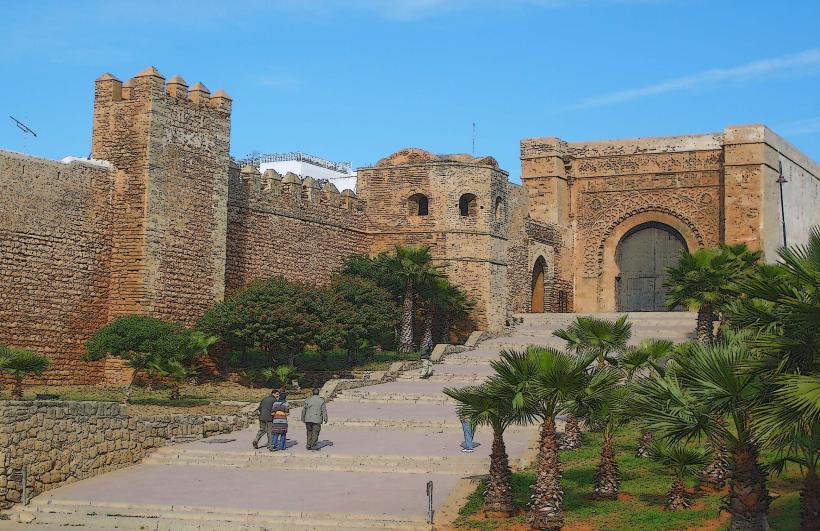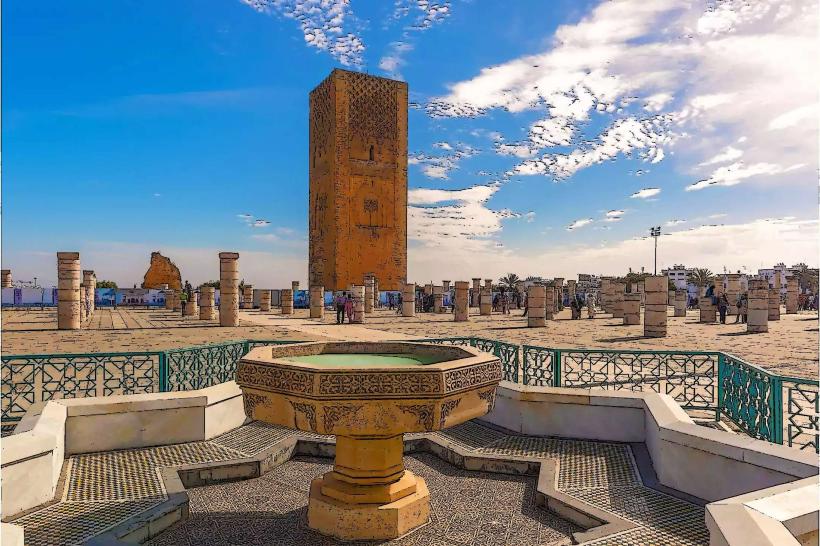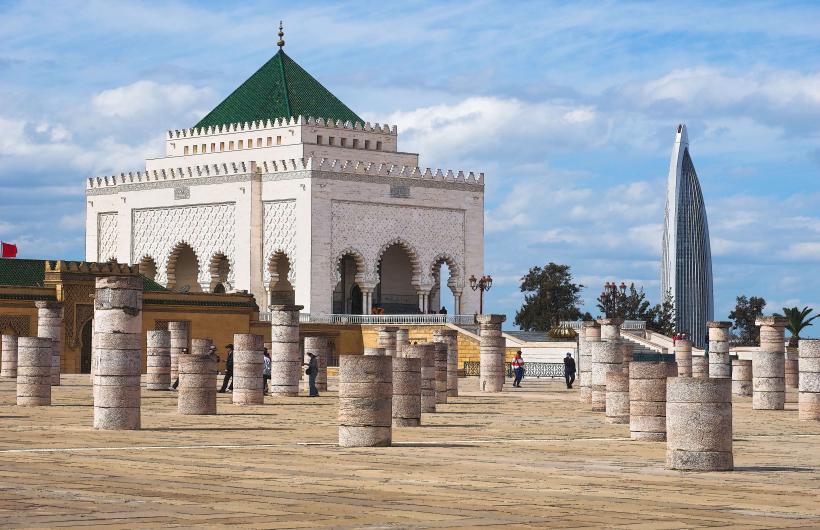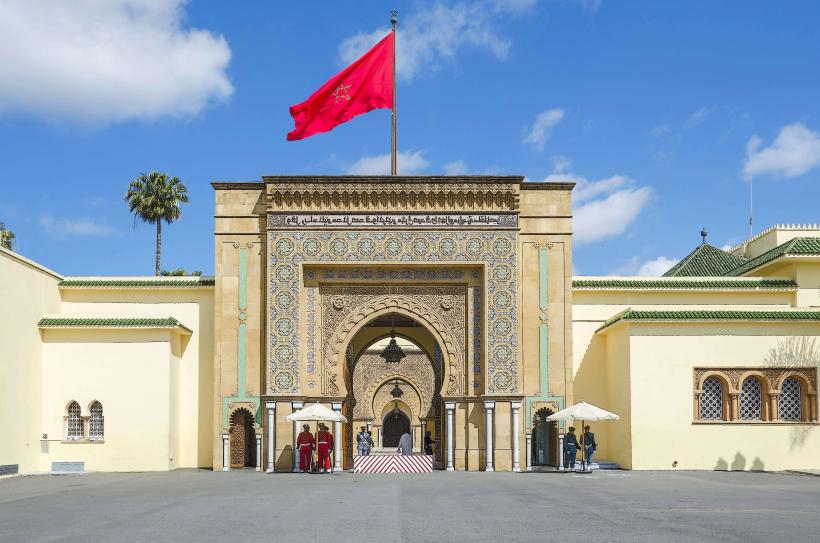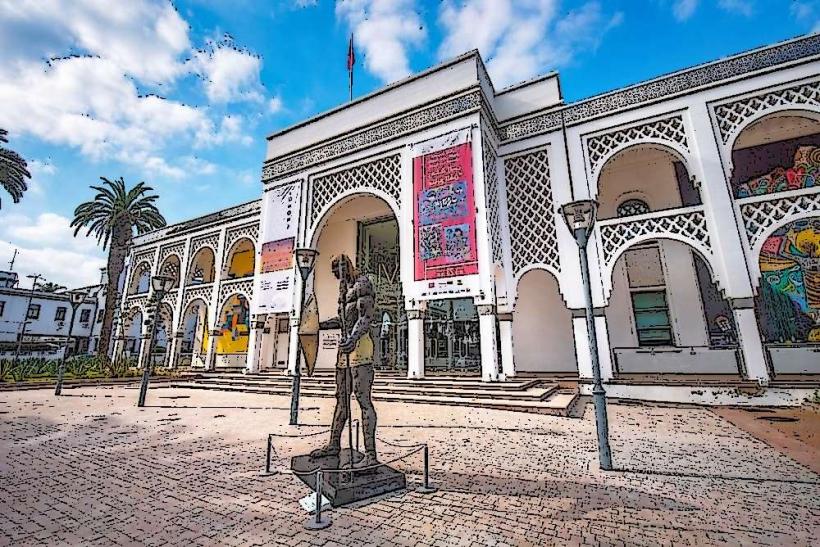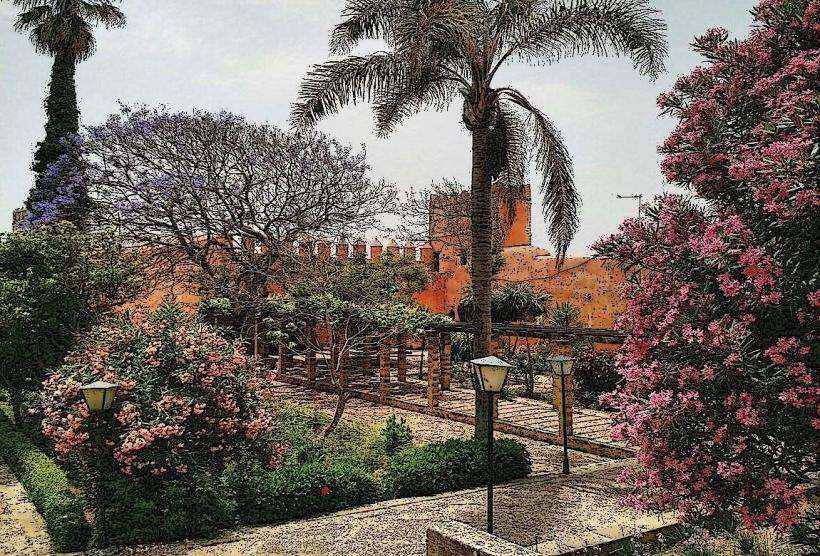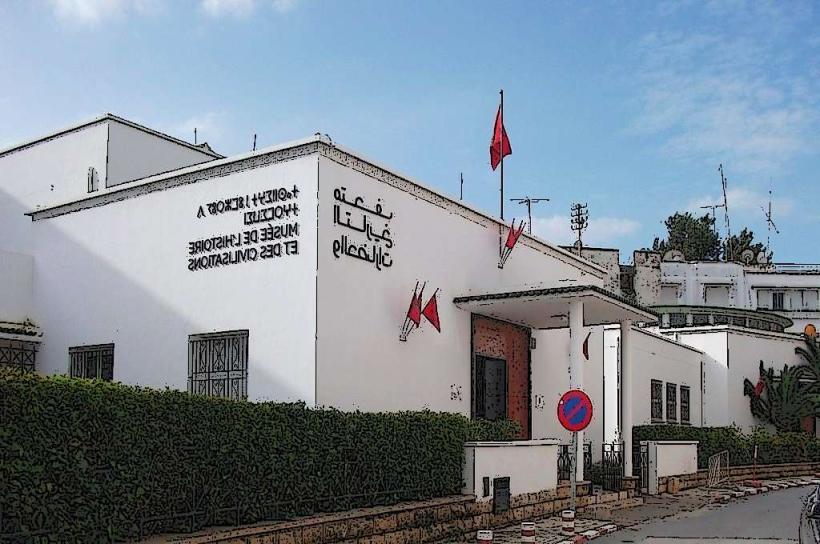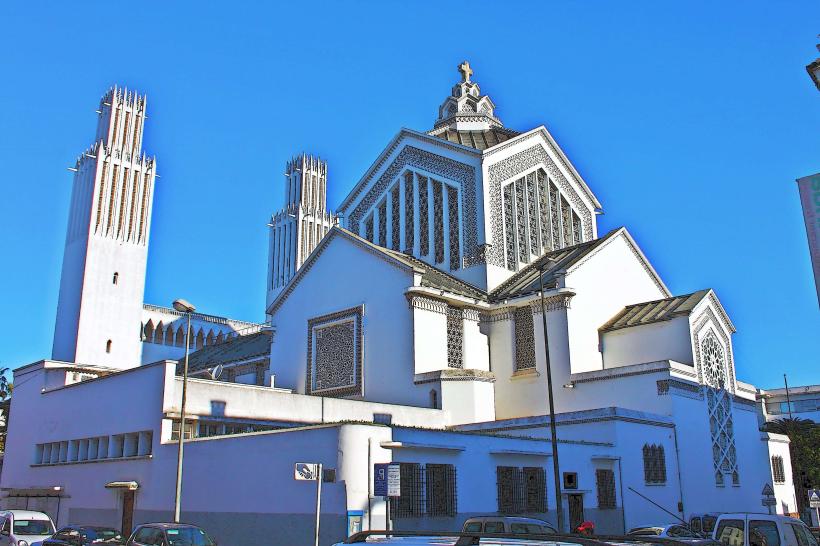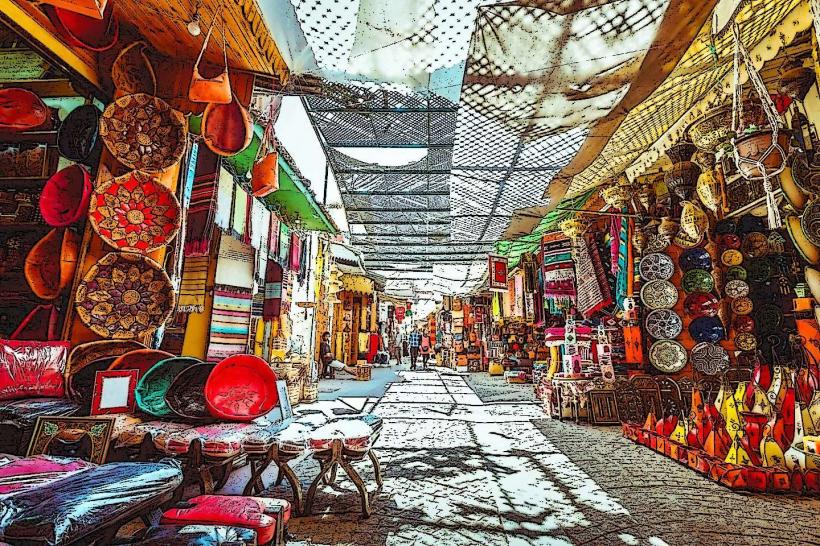Information
Landmark: Chellah NecropolisCity: Rabat City
Country: Morocco
Continent: Africa
Chellah Necropolis, Rabat City, Morocco, Africa
The Chellah Necropolis is one of Rabat’s most fascinating and historically rich sites, offering visitors a unique glimpse into Morocco’s ancient past. Located on the outskirts of the city, near the Bou Regreg River, the Chellah is a blend of Roman, Islamic, and medieval history, making it a remarkable place for history buffs and casual visitors alike.
Here’s a detailed overview:
1. Historical Background
Roman Origins: The site of the Chellah Necropolis originally housed a Roman city called Sala Colonia, which was founded in the 3rd century BCE. It became an important Roman settlement in North Africa, thriving during the Roman Empire.
The Roman ruins in Chellah, including remains of temples, baths, and a forum, testify to the city’s prosperity before its eventual decline.
Islamic Reuse: After the fall of the Roman Empire, the site was abandoned for centuries. In the 14th century, during the reign of the Merinid dynasty, the site was revived as a necropolis and fortified with Islamic architecture.
The Merinid tombs were constructed in this period, marking Chellah as a royal burial ground.
Over the centuries, the site remained relatively undisturbed and became a place of pilgrimage and meditation.
2. The Roman Ruins
Roman Baths: The remains of Roman baths at Chellah are among the most notable features. They offer insight into the engineering and bathing culture of the time.
The Forum: Once the center of Roman life, the forum is now a quiet area where the ruins of columns and pavement stones are still visible.
The Temple: There are ruins of a Roman temple, likely dedicated to deities worshipped during the Roman era, though little is known about its specific use.
Other Roman Artifacts: Various mosaics, inscriptions, and statues have been found here, some of which have been relocated to the Rabat Archaeological Museum.
3. Islamic Features and Merinid Tombs
Merinid Tombs: One of the most striking features of the Chellah Necropolis is the tombs of the Merinid rulers. These are large, intricately designed structures, some featuring carved stucco and geometric tilework that reflect the Islamic art of the 14th century.
The tombs are adorned with Arabic inscriptions and are situated amidst a garden-like setting that gives the area a serene and meditative atmosphere.
Mosques and Minarets: There are remains of small mosques and minaret structures, which were likely used by those buried here for prayer and rituals.
The Islamic influence is more prominent in the site’s architecture, with arched doorways, courtyards, and the introduction of lush gardens that contrast with the austerity of Roman ruins.
4. Natural Setting
Peaceful Atmosphere: The site is surrounded by lush gardens and vegetation, providing a tranquil environment that blends nature with history.
Wildlife: Over the years, the Chellah has become a sanctuary for many species of birds, particularly storks, which nest in the ruins of the Roman structures. These large birds can often be seen perched on the columns and walls, adding to the beauty of the site.
The contrast between the ancient ruins and the lush greenery gives Chellah an almost mystical, otherworldly quality.
5. Visiting the Chellah Necropolis
Opening Hours: Typically, the site is open every day from morning to late afternoon, but the hours may vary depending on the season.
Entry Fee: A small fee is charged for entry, which is typically affordable for most visitors.
Guides: There are often local guides available to provide detailed explanations about the historical significance of the site, though signs and information are also available in English and French.
Best Time to Visit: Early morning or late afternoon is ideal for a visit to avoid the midday heat and crowds. It’s a peaceful site, and the golden light of sunset enhances its beauty.
6. Symbolic Importance
Religious Significance: For both locals and visitors, the site symbolizes the continuity of Moroccan culture and history, with layers of Roman and Islamic heritage coming together at one location.
Cultural Heritage: As a significant archaeological site, Chellah is a testament to Morocco’s rich cultural and historical legacy, representing the different civilizations that have shaped the country over millennia.
7. What to Combine With Your Visit
Hassan Tower and Mausoleum of Mohammed V: Located not far from Chellah, these landmarks are part of Rabat’s royal heritage and offer a contrast to the more ancient Roman and Merinid ruins at Chellah.
Royal Palace: A short drive from the Chellah, the Royal Palace in Rabat offers a glimpse into modern Moroccan royalty.
Kasbah of the Udayas: A charming and historical area of Rabat, located along the river and near the ocean, perfect for a stroll after visiting Chellah.
Medina of Rabat: Explore the old city for more insight into Moroccan life, handicrafts, and history.
8. Practical Tips
Wear comfortable walking shoes, as the site can involve some uneven terrain, especially within the ruins.
Don’t forget to bring water, as it can get warm in the summer months.
Take time to explore the gardens; they’re not only beautiful but also give a sense of serenity amidst the ruins.
Be respectful, especially around the tombs, as they are sacred places.
Summary
The Chellah Necropolis offers a unique blend of Roman, Islamic, and medieval history set in a lush, serene environment. It is one of Rabat’s most significant and peaceful historical sites, with fascinating ruins that span thousands of years. Whether you’re a history enthusiast, a lover of nature, or simply looking for a tranquil escape, the Chellah Necropolis is a must-visit destination in Morocco’s capital.

